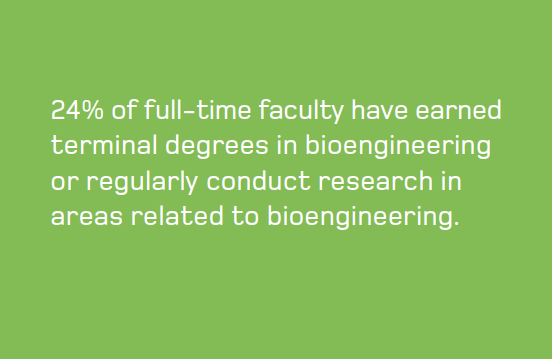Bioengineering Research

BENEFITING HUMANITY
Bioengineering and biomedical engineering research leverages engineering approaches to solve complex biological problems that often require a multi-disciplinary framework. With a broad scope ranging from genetic editing to the synthesis of functionalized bacteria to engineered tissues or therapeutic exoskeletons, bioengineering has quickly evolved to be one of the key areas where society reaps enormous benefits, from medicine to quality of life.
IMPROVING LIVES
Cooper Union’s bioengineering research builds on faculty expertise in computing, control, design, fluids, materials, and mechanics to address critical research problems in bio-imaging and modeling, bio-inspired design of robots, biomaterials, tissue engineering, biomechanics, bio-instrumentation, and genome editing. Active project areas include airflow study, children with obstructive sleep apnea, technology for use in kidney research, CRISPR-Cas9 approaches to gene editing, drug delivery by controlled release, and magnetic chemotherapy technologies.
BUILDING A BETTER WORLD
Bioengineering is one of Cooper’s most active areas of research, supported by grants from the NIH and NSF and multi-faceted collaborations with Albert Einstein College of Medicine, Icahn School of Medicine at Mount Sinai hospitals, and Memorial Sloan Kettering Cancer Center that include research and educational opportunities for undergraduate and graduate students. Cooper Union faculty and students publish in leading journals and participate in a variety of international conferences. Bioengineering at The Cooper Union continues to grow as new projects address key areas and new faculty expand the scope of Cooper’s impact. Locally, faculty and student research is supported by the Maurice Kanbar Center for Biomedical Engineering, the Forrest Wade Rapid Prototyping Center, the Materials Engineering Lab, and the Complex Fluids Lab, each providing resources for work in biofluids, biomechanics, tissue engineering, and genetic research.

OUR FACULTY AFFILIATED WITH BIOENGINEERING
Professor F. L. Fontaine, Ph.D. Electrical Engineering, Stevens Institute of Technology
Professor E. Lima, Ph.D. Biomedical Engineering, Columbia University
Professor O. Medvedik, Ph.D. Biomedical and Biological Sciences, Harvard Medical School
Professor R. Savizky, Ph.D. Biophysical Chemistry, Yale University
Professor N. Shlayan, Ph.D. Electrical Engineering, University of Nevada, Las Vegas
Professor J. Weiser, Ph.D. Biomedical Engineering, Cornell University; Postdoctoral Fellowship in Biomedical Engineering Yale University
Professor D. Wootton, Ph.D. Mechanical Engineering, Georgia Tech; Postdoctoral Fellowship in Biomedical Engineering, Johns Hopkins University
Professor P. Yecko, Ph.D. Astronomy, Columbia University; Postdoctoral Fellowship in Multi-phase Flow Modeling Sorbonne, Paris




